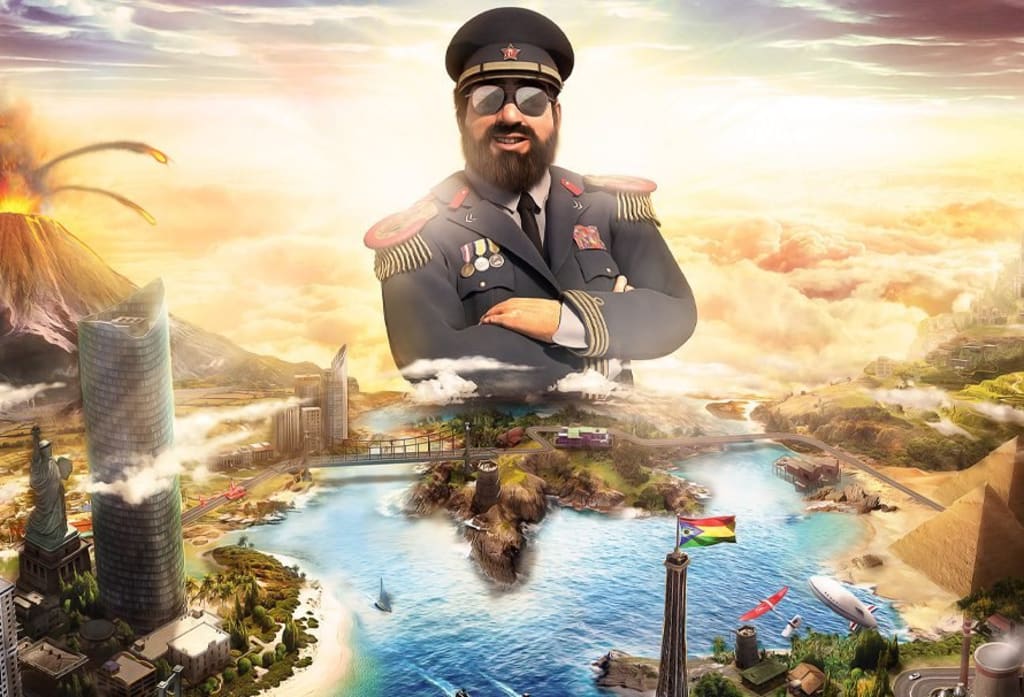A Theory on Dictatorships
What is it and why it must be known

Dictatorships are one of the oldest style of government in human history up to present day. It is found all over the place and historically more often in specific continents than others. A variety of components must be present for it to develop such as sociopolitical, geopolitical, economic and political means. Generally, violence and extreme criminal behavior are harnessed for a dictatorship to establish itself. Over time, this term has been watered down extensively due to fears of its power. Understandably so. So what does it actually entail? Let us find out.
If we go back, you will see that ancient and medieval kingdoms have thrived with dictatorships. Their reasoning that a mighty deity is responsible for granting a particular person to rule is a classic example. "I was chosen by our God or Gods to rule over this land, therefore, I shall rule as I so please." The divine right of Kings was the bread and butter foundation for medieval leadership in the feudal system in which the Christian God has sanctioned this type of rule with his holy blessing so the King could rule over the lands for as long as humanely possible. They cited the Bible as their rite of passage and proof to rule over the kingdom and many Kings from countless royal lineages around the world have performed precisely that. Essentially, many lower class lords, merchants, serfs and so on have grown tired of this autocracy and began chipping away at its pillars. Of course! No one wants to be tied down, right? Humans want to move freely and make decisions for themselves. Critical and sweeping documents such as the Magna Carta and the Habeas Corpus were the first monumental steps in achieving some kind of independence. As the enlightenment arrived and challenged the very notion of God's rule and the divine right of Kings (humanism, atheism, agnosticism), the form of government lost appeal and ran aground.
But this doesn't mean that it went away entirely, absolutely not. Many philosophers believed that humans can't be trusted to run societies and communities, let alone states. It even says in the American Constitution regarding separation of powers and checks and balances. Indeed, philosophers believe the humans are frail (Calvinism) and unable to rule effectively, which is why they need to be checked and have their powers curtailed so it can be spread across the body and not kept by one person (King, or ruler of sorts). Nowadays, dictators look for other ways to achieve full and absolute power. Like I mentioned earlier, they look at their country's current condition: "How is it doing economically and politically? How are my neighbors faring? Is there a serious crisis afoot?" If they can check one of these boxes, what kind of language would a dictator use? For one thing, this candidate will try to blame a group of people for their trouble: "It is a us vs them scenario" or "they are at fault for the condition of our lovely country!" or "they want to harm us with their ideas and plans! They are the enemy!" A dictator uses this language to rile up fear within the population so they could see the dictator as the most ideal solution to rid the country of these problems. This is how conspiracy theories are born and they become a dangerous weapon for those who want to use them. When this happens, human rights are at stake. The targeted group of people lose their rights to vote, to express freedom of speech, to be represented in court and so on. Also, freedom of the press, due-diligence and mobility will be hampered if not prohibited. In this case, the country's landscape will change fundamentally which will make it difficult to overturn. The most lethal types of dictatorships are the cause of ethnic cleansing, suppression, genocide, assassinations and propaganda and there is no shortage of these tactics that have left a nasty scar in many countries around the world. These are the worst case scenarios.
To get power, dictators commit crimes and tend to utilize the military to achieve victory as a last resort. One way they could do it is to rig elections or say that the election had been compromised without providing a single shred of proof. If this doesn't work, the dictator tries to undermine the justice system and even the military to achieve his/her ultimate goal of absolute rule. If the country has solid and credible institutions in place, a coup can be prevented. If the country is mired in corruption, lawlessness and disarray, a dictator will have a better chance to make it. Especially in vast regions where there is instability, dictatorships can take control easily.
Due to colonialism and imperialism, many countries in Africa, South America and Asia have seen comprehensive dictatorial regimes. Many dictators wanted to rid their countries of foreign rule, and did whatever they could to achieve independence. Sadly, once they succeeded, they implanted themselves as heads of state for life. This was done because the country was starting from scratch after foreign rule was expelled. This way, the dictator can write up and declare anything he wants and it will stick for decades to come because he will have the power to lay the foundation as he sees fit. But, over time, also they were forced to vacate the premises for a democratic alternative.
Dictatorships have been around for thousands of years in different forms. They claim to have all the answers and intentionally cause tensions within the population to bring about change that benefits them only. Hundreds of millions have been killed due to domestic and international conflicts, genocide, ethnic cleansing, imprisonment. Entire generations have been erased, and the country's history will be tattered for generations to come. That is because dictatorship is the most ruthless, bloody and vile form of leadership that has been conceived by humans in its entire history. Only democracy and human rights can cure this disease.
About the Creator
Kevin Tennert
I think expressing yourself in fundamental and categorical topics help create a more transparent, concise, and educational environment. For me, I like to explain key issues that dominate current events in society and encourage dialogue.






Comments
There are no comments for this story
Be the first to respond and start the conversation.